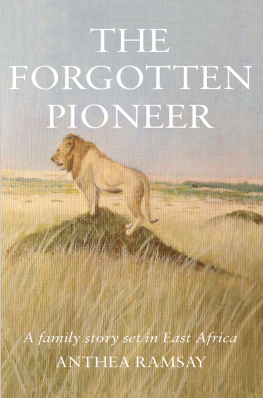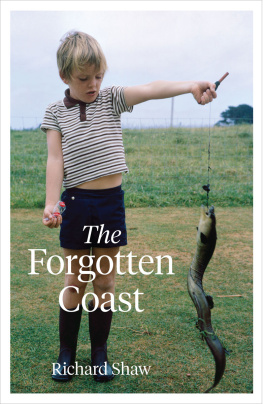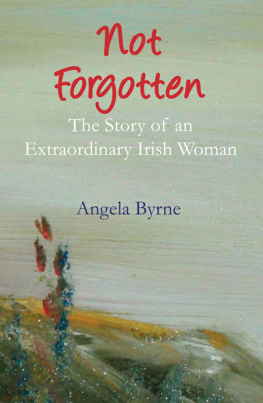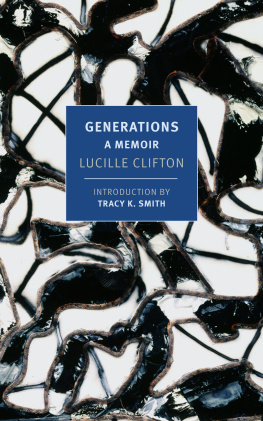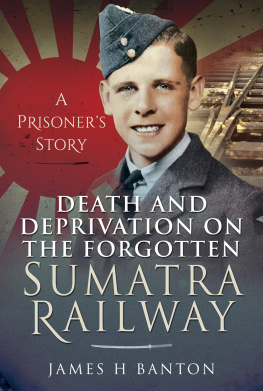
Copyright 2018 Anthea Ramsay
Original edition published in 2014, reprinted in 2015
The moral right of the author has been asserted.
Apart from any fair dealing for the purposes of research or private study, or criticism or review, as permitted under the Copyright, Designs and Patents Act 1988, this publication may only be reproduced, stored or transmitted, in any form or by any means, with the prior permission in writing of the publishers, or in the case of reprographic reproduction in accordance with the terms of licences issued by the Copyright Licensing Agency. Enquiries concerning reproduction outside those terms should be sent to the publishers.
Matador
9 Priory Business Park
Kibworth Beauchamp
Leicestershire LE8 0RX, UK
Tel: (+44) 116 279 2299
Fax: (+44) 116 279 2277
Email:
Web: www.troubador.co.uk/matador
ISBN 978 1789012 705
British Library Cataloguing in Publication Data.
A catalogue record for this book is available from the British Library.

Matador is an imprint of Troubador Publishing Ltd
DEDICATED TO MY EIGHT WONDERFUL GRANDCHILDREN
This book is in memory of my grandparents, George Ernest and Alice Muriel Ramsay, who were pioneers in every sense of the word. They, like so many early East African settlers, were so intent on braving the hardships needed to survive in this harsh new country that they did not record their experiences, most of which are now lost in time. It is thanks to men and women like them that the secrets of this magnificent land have been revealed to the rest of the world.
I am fortunate in having memories of my grandparents recollections, together with letters, diaries, and photographs of their early days in British East Africa without which I would not have been able to write these pages.
I have continued the story with memories of my parents early lives in Kenya on the fringe of the Happy Valley set and the murder of Lord Erroll, followed my own childhood living in the shadow of the Mau Mau rebellion.
CONTENTS
SOME REVIEWS
Using diaries and letters, Ramsay writes the fascinating story of her grandparents, the first white settlers in Kenya. The author also includes stories of her grandparents children and her own childhood as well. While the book is nonfiction, its exciting as anything Hemmingway ever wrote about Africa. Highly recommended
Cayocosta72.wordpress.com
I was a child in Kenya when the country gained independence, so was fascinated to read this very personal account by Anthea Ramsay. Drawing from her grandparents diaries and photographs, as well as her own memories as a child, this sometimes harrowing book describes what it was like to live in East Africa for the first white settlers. We then follow the adventures of Antheas family right through to the present day.
Taking real dangers in their stride, from wild animals to lawless Mau Mau rebels, this family lived through an era that could easily be forgotten, There was the constant threat of malaria or the dreaded black water fever, with only the most basic medical care. It is recalled as a happy time, however, with amazing extremes of wealth and poverty. The Forgotten Pioneer is a very readable book and shines a light on a period of history which is often overlooked. Thanks to Anthea Ramsay at least the men and women who helped to make Kenya what it is today will no longer be forgotten
Tony Riches, historical fiction author
of eleven books including the Tudor Trilogy.
Memoires and biographies are my favourie genre, and as an ex-Kenya girl having lived there at the same time as the author, and knowing many of the people and places she describes, I loved this book.
From family archives and diaries the author brings to life the exploits of her grandfather who, in 1998 left his comfortable upper-class existence in London to embark on a new life in a country where a white face was a novelty.
Plenty has been written about Kenyas Great White Hunters and the scandalous socialities of Happy Valley, but we hear very little about the pioneers who laid the cornerstones of the countries commercial life. The Forgotten Pioneer follows George Ramsays journey over more than 50 years, from a primitive tent to an elegant home in Nairobis most prestigious district. It gives a wonderful look into the lives of British settlers during Kenyas era as a British colony, when tradition must be adhered to, and the servants wore white gloves to hand around the cucumber sandwiches from bone china plates and tea was poured from a silver teapot. People dressed for dinner, meals were served promptly and consisted of at least five courses. If the family servants found this behavior strange they gave no sign, but performed their duties impeccably and inscrutably. They are remembered with affection by the author, as valued members of the household
Susie Kelly, author of twelve books
including Swallows and Robins and Two Steps Backward.
This book was a very interesting insight into the life of an early pioneer in Kenya. I particularly enjoyed the earlier sections of the book where the author relates tales of her fearless grandparents in the untamed wilds of Kenya in the early twentieth century. I also really enjoyed looking at all the photos. Very helpful for my research, thank you
Rebecca Stonehill, author of The Poets Wife, The Girl
and the Sunbird and The Secret Life of Alfred Nightingale.

PART ONE
CHAPTER ONE
NEW BEGINNINGS
My grandfather, George Ernest Ramsay, first set foot in East Africa in 1898 at the age of twenty-two when it was still a primitive, undeveloped, and dangerous place. He was one of the first white people with the courage and foresight to leave the comfort and security of his life in England to start a new life in a strange and distant country. British East Africa was mainly uninhabited and comprised of deep, dark forests, and vast plains, both of which were teeming with wild animals. What human life there was consisted of hostile African tribes who dressed in animal skins, carried spears or poisoned arrows, used shells as their currency, and had almost certainly never seen a white face.
George Ernest was born at 13 Sylvester Terrace, Mark House Road, Walthamstow on 11 December 1876. He was the son of George Ramsay, a wealthy wine merchant, and his French wife, Clara Jeronomy ne Le Plastrier. Her ancestors were French Huguenots who arrived in England as refugees in 1685. George Ernest was a good-looking boy of medium height with a mass of light brown hair, which he was to lose at a very early age leaving him completely bald. He was one of a large family comprising nine children two boys and seven girls, Clara, Elizabeth, Arthur, Amy, Gertrude, Winifred, Beatrice, and twins Edith and my grandfather George. The family lived in a comfortable, rambling old house in Bromley which they shared with Clara Jeronomys mother, Sophia Le Plastrier, and three servants.
Although my grandfather loved his family, he was rather self-contained and solitary by nature. He often longed to escape to a quiet place which was not easy with so many siblings. He was sent to boarding school at an early age, as was the custom for middle class families in England at that time, which gave him some respite. He enjoyed his school days as he excelled at all sports and was academically bright, but dreamed of one day escaping the confines of his familys strict Victorian lifestyle to seek an exciting and adventurous life in some far-flung country. On leaving school he was encouraged by his parents to train as an accountant, which he did, albeit reluctantly. It was while he was working in London that he met and fell in love with a pretty, slender, dark-haired girl from Lee in Kent, Alice Muriel Norman, my grandmother. They quickly became engaged and planned to marry as soon as possible, but fate intervened and they were destined to be apart for nearly four years.
Next page
